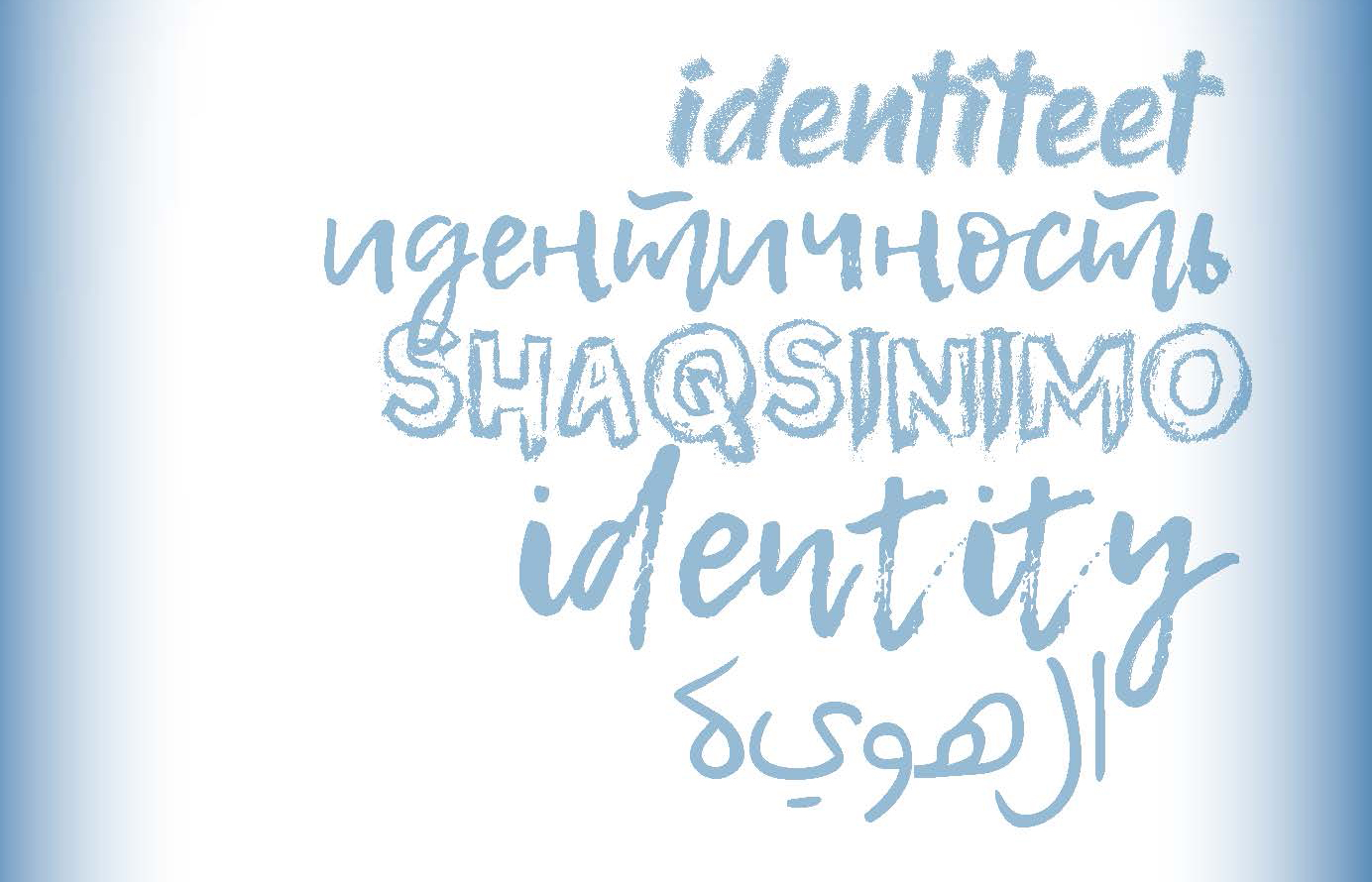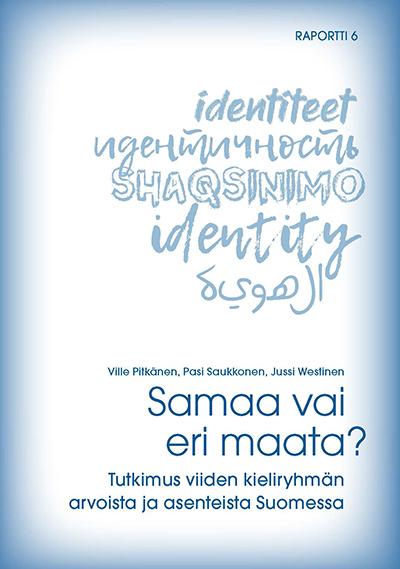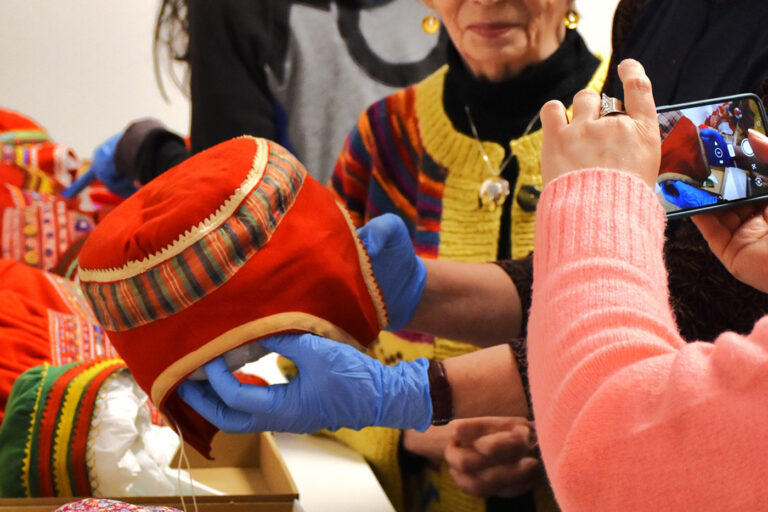Research shows: Residents with foreign background have more trust in native Finns than in countrymen
A unique study on five language groups reveals that residents with foreign background have more faith in native Finns than in their countrymen. Also, they strongly trust the police and the judicial system as well as the educational and health care systems. Satisfaction with Finnish politics varies depending on language group. The English-speaking appraise political achievements the highest, whereas Somali speakers are the most critical.

A unique study on five language groups reveals that residents with foreign background have more faith in native Finns than in their countrymen. Also, they strongly trust the police and the judicial system as well as the educational and health care systems. Satisfaction with Finnish politics varies depending on language group. The English-speaking appraise political achievements the highest, whereas Somali speakers are the most critical.
These are findings of People of the same kind – or different? A study on the values and attitudes of five groups of foreign language speakers in Finland, a publication on values, attitudes, trust and identities among residents whose first language is Russian, Estonian, English (background in an English-speaking Western country), Somali or Arabic.
Authors of the report were researchers Ville Pitkänen and Jussi Westinen at e2 Research, and special researcher Pasi Saukkonen at the City of Helsinki. The study was based on more than 1500 query answers, around 300 per language group.
The research project was planned and financed by the Finnish Cultural Foundation, e2 Research, the cities of Helsinki, Espoo and Vantaa, and the Ministry of Justice.
More trust in native Finns than in own countrymen
The speakers of Arabic, Russian, Estonian and English have more faith in native Finns (i.e. whose first language is Finnish or Swedish) than in people from their or their family’s country of origin.
As an exception, the Somali speaking have more trust in other Somali speakers than in native Finns.
– The Somali-speaking form tight communities in the capital region. That strengthens their mutual trust, researcher Ville Pitkänen analyses.
Solid trust in Finnish institutions
Residents with a foreign background have strong faith in the school system, the universities and the health care system.
The speakers of Arabic trust the police, public officials and the judicial system more than the others do. Somali speakers, too, have high faith in institutions, although they have less so in the police than the rest of the language groups.
All language groups trust the President of the Republic more than Parliament or the Cabinet. Confidence in politicians and political parties is clearly weaker.
As many as three out of four English speakers actively follow Finnish social issues, and so do two thirds of the Somali speakers. Least active are the speakers of Estonian (36 %).
The ones most disappointed with political achievements are the Somali speakers, of whom 71 percent think that Finnish politics seldom achieve anything good. Only 12 percent of the English speakers share this view.
– Although the Somali speakers show the highest dissatisfaction with politics, they were the foreign language group that voted most actively in the latest municipal elections. Discontent does not equal passivity, Ville Pitkänen accentuates.
Finland’s independence is sacred to many residents of foreign background
More than half of the Somali speakers (56 %) feel that the independence of Finland is extremely important or even sacred. More than the other language groups, they emphasize being Finnish as part of their identity. The same is rare among Estonian speakers.
Three out of four foreign-background residents value Finland’s success in sports, as it unites people regardless of origin. They even give more significance to sports achievements than native Finns do.
– In many areas, contacts are scarce between native Finns and immigrants, but sports and sports clubs bring people together. Foreign-background sportsmen in blue-and-white give positive role models, Jussi Westinen assesses.
Positive attitudes toward migration – except among Estonian speakers
Almost all English and Somali speakers have a positive attitude to global migration. The opposite view is shared by a third of the Russian speakers and as many as three out of four Estonian speakers. A third of the Estonian speakers also see free mobility within the EU as more negative than positive.
– The Estonian speakers, too, benefit from the internal migration, but those working in Finland may not perceive themselves as migrants. Also, many of the Estonian-speaking in the Helsinki Capital Region have a nationalistic set of values, researcher Pasi Saukkonen ponders.
Belief that success is up to the individual
The studied language groups share a strong belief in the self-made person. Some ninety percent of the Russian, Estonian, Arabic and Somali speakers think that it depends on the individual how they succeed in life. This view is far less usual among English speakers (74 %) and native Finns (64 %).
– The theme of one’s own responsibility and coping was strongly present in a recent Swedish study, too, which featured interviews of immigrants in suburbs of Gothenburg, Jussi Westinen tells.
People of the same kind – or different? A study on the values and attitudes of five groups of foreign language speakers in Finland is the second publication within the research project “Values and identities of language minorities”. The first report was published in September 2019. The research was based on 1527 query answers by individuals. Taloustutkimus gathered the material through personal interviews between 4 October 2018 and 31 March 2019. Authors of the questionnaire, analyses and research report were Ville Pitkänen, Pasi Saukkonen and Jussi Westinen. The report will be publicized in the lobby of Helsinki City Hall on 18 December 2019 at 9 a.m. The report is downloadable at www.e2.fi
For more information, please contact:
Researcher Ville Pitkänen, Dr.(Soc.Sc.), tel. +358 40 777 0869, ville.pitkanen@e2.fi
Special Researcher Pasi Saukkonen, Dr.(Soc.Sc.), tel. +358 40 334 4800, pasi.saukkonen@hel.fi
Researcher Jussi Westinen, Dr.(Soc.Sc.), tel. +358 40 833 5799, jussi.westinen@e2.fi



